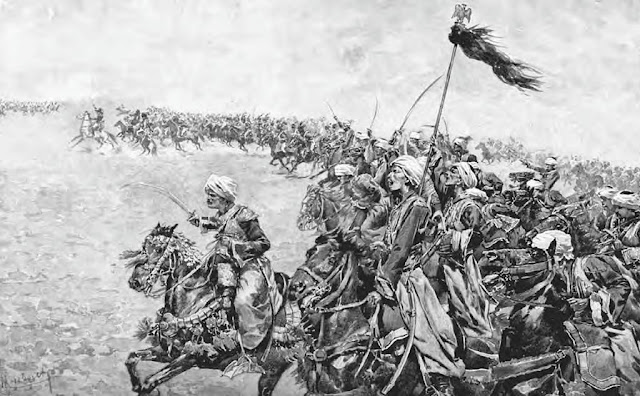Representatives and leaders from 29 countries convened in
the Merdeka Building in Bandung, Indonesia upon the invitation of the Colombo
Powers to unite newly independent countries to form a third block of neutral
countries in conflict between 2 superpowers. At the end of the conference, they
released the Bandung final communiqué – the conclusion of the 6-day event.
Showing posts with label Middle East. Show all posts
Showing posts with label Middle East. Show all posts
Sunday, June 24, 2018
Thursday, March 29, 2018
Who were the Buyids?
As the power of the Abbasid Caliphs
wavered, ambitious generals and officials rose to power in their localities and
set out to create their own dominions and empires. One such clan – the Buyids -
embodied the divide during the period and the illustrated the political
impotency of the Abbasid Caliphs.
Sunday, March 18, 2018
Saturday, March 3, 2018
Sunday, February 18, 2018
Who was Harun al-Rashid?

Ruled
as the 5th Abbasid Caliph (r. 785 – 809), Harun al-Rashid ibn Muhammad al-Mahdi
(763/766 – 809) presided over an explosive era of great achievements for the
Islamic civilization, but his reign also began the decline of the Abbasid Caliphate.
Sunday, February 11, 2018
A Brief History of the Abbasid Caliphate
The
Abbasid Caliphate (750 - 1258) stood was a great Islamic Empire that dominated
two continents. Founded through revolution, it presided over a golden age until
it declined due to intrigue, war, and weakness that led to its centuries of
powerless existence until its downfall in the hands of the Mongols.
Wednesday, January 31, 2018
Saturday, January 13, 2018
Sunday, December 31, 2017
Saturday, December 16, 2017
Sunday, December 10, 2017
Founders: Who was Muawiya I?
In the 7th century, a new religion
emerged in the inhospitable deserts of Arabia – Islam. Alongside with Islam, a
new empire also emerged. Born from internal struggle, the Umayyad Caliphate
became stronger and more organized than before. Credit to this reemergence
mostly went to its founder – Muawiyah bin Abi Sufyan.
Monday, October 31, 2016
What are the Causes of the Yom Kippur War?
At
2pm of October 6, 1973, while Israel observed Yom Kippur, Egyptian guns
bombarded Israeli forts along the Suez Canal, while the Syrians attacked Israeli
positions within the Golan Heights. The surprise attacks signaled the start of
the Arab-Israeli War known as the Yom Kippur War or Ramadan War in Arab states. But what led the two Arab
countries to attack Israel? What drove them into starting another
conflict in a highly volatile region?
Subscribe to:
Posts (Atom)










